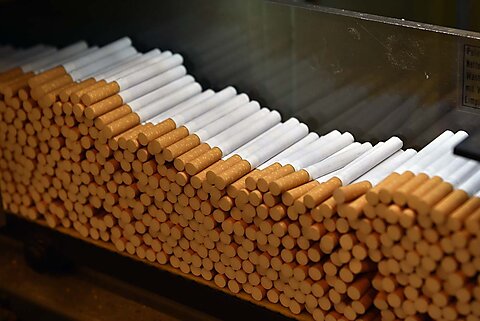Jeffrey A. Singer
Axios reports that the Biden Administration is planning an 11th-hour move to order cigarette manufacturers to reduce the nicotine content in the tobacco cigarettes they market to consumers—possibly by as much as 95 percent. The FDA proposed the rule in 2022, and the Office of Management and Budget cleared the rule proposal on January 3, 2025.
The Food and Drug Administration has not yet issued the rule but may do so within the next two weeks.
Nicotine is the addictive component of tobacco cigarettes, but by itself is relatively harmless. The harm comes from carbon monoxide, a poisonous gas, and tobacco tar that contains carcinogens and other chemicals that harm the lungs and circulatory system. Britain’s Royal Society for Public Health claims nicotine is “no more harmful to health than caffeine.” As I have written here, what differentiates nicotine from caffeine is that it has calming as well as stimulative effects.
Tobacco cigarettes are a type of nicotine delivery system. While some smokers may enjoy the flavor of tobacco and the act of smoking, many primarily smoke for the effects of nicotine.
The rationale behind ordering cigarette makers to reduce the nicotine content of tobacco cigarettes is that it might nudge smokers to abandon smoking. In 2018, FDA researchers reported in the New England Journal of Medicine that they used a simulation model that suggested reducing the nicotine content of tobacco cigarettes by 95 percent could lower the percentage of adult smokers to 1.4 percent by 2100.
Yet one randomized controlled study of the efficacy of reducing nicotine content to such levels found:
In smokers not interested in quitting, reducing the nicotine content in cigarettes over 12 months does not appear to result in extinction of nicotine dependence, assessed by persistently reduced nicotine intake or quitting smoking over the subsequent 12 months.
Some researchers have found that reducing the nicotine content may lead to a compensatory increase in cigarette consumption or increased puff volume to attain the nicotine effect. A team of researchers at the University of Pennsylvania reported in the journal Drug and Alcohol Dependence on a novel “within-subject human laboratory study” hypothesizing “that compensatory smoking, specifically greater total puff volume, would be observed as nicotine levels decreased, thereby supporting behavioral compensation. Further, due to increased total puff volume, we hypothesized increases in CO boost as nicotine levels decreased (i.e. biochemical evidence of compensation).” They found:
As hypothesized, both total puff volume and CO boost per cigarette increased when cigarette nicotine level decreased, although the effect was modest. Subjective ratings of cigarette strength and satisfaction were significantly lower for the lower-nicotine cigarettes.
Yet, other studies, such as this 4‑day study, failed to discern any increase in the number of cigarettes smokers consumed with decreased nicotine levels. Researchers at the University of Minnesota conducted a “secondary analysis of data” from studies where cigarette nicotine content was either gradually or immediately reduced and found:
The results showed that in general, these two approaches led to minimal compensatory smoking…over the course of the experimental period, suggesting that neither of these approaches poses a major safety concern.
Policymakers also aren’t considering that mandating cigarette makers to reduce nicotine will likely stimulate a healthy black market in higher-nicotine cigarettes, benefiting drug cartels and other criminal organizations. Menthol cigarette black markets have arisen in states and countries that have banned them. Ironically, the Biden administration has delayed a decision on a federal menthol cigarette ban, yet seems poised to generate a black market in regular cigarettes.
If policymakers want more people to quit tobacco smoking, they should remove barriers to tobacco harm reduction by increasing access to e‑cigarettes, including flavored ones preferred by smokers wishing to quit, nicotine pouches, and less harmful products like heated tobacco and snus. That way, people can get the nicotine they desire without utilizing the harmful tobacco cigarette delivery system.

